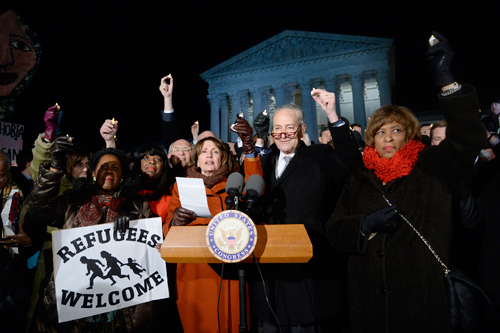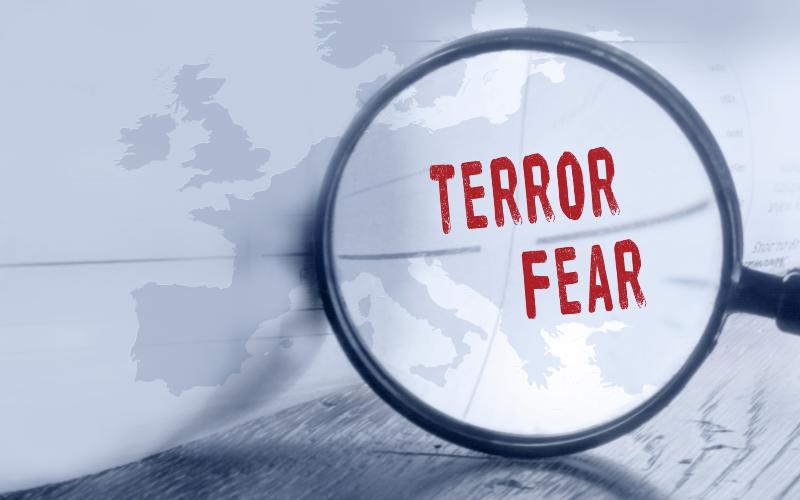A Chilean Model for Russia
By José Piñera
Free markets, free people
What Russia needed at the beginning of the twentieth century was not a
Bolshevik Revolution but an American one. The tragedy of that great
nation was that it got a Lenin instead of a Jefferson. Today, nearly ten
years after the collapse of the Soviet Union, Russia’s new president,
Vladimir Putin, has the historic opportunity to start the freedom
revolution that his country missed last century.I had the opportunity to assess Russia’s situation at the end of April, when I traveled to Moscow at the invitation of President Putin’s newly appointed economic adviser, Andrei Illarionov. As a member of the team of economists that entered the Pinochet government in Chile in the 1970s to produce a free-market economic revolution and a return to democratic rule, I was inevitably asked whether Russia “needed a Pinochet” and whether the country should introduce a “Chilean economic model.” My unequivocal answer was no to the first question and yes to the second.
Free Trade and Social Security Choice
By José Piñera
Chile is the first South American nation to sign, with complete
bipartisan support within the country, a Free Trade Agreement with the
United States. Now, why do Chilean workers support free trade policies?
Because while the nation in the 1970s was initiating its free-trade
development strategy it was also establishing a pioneering system of
personal retirement accounts as the foundation of its Social Security
policy.
The connection between the two is important. All around the world, trade liberalization is cast as a battle between capitalists and workers, between “global elites” and the “common man.” In Chile, however, market-invested retirement funds mean that every worker is a capitalist and has a visible stake in an internationally competitive economy. In Chile, to be anti-globalization is to be both anti-capitalist and anti-worker.
The connection between the two is important. All around the world, trade liberalization is cast as a battle between capitalists and workers, between “global elites” and the “common man.” In Chile, however, market-invested retirement funds mean that every worker is a capitalist and has a visible stake in an internationally competitive economy. In Chile, to be anti-globalization is to be both anti-capitalist and anti-worker.
Upholding Liberty in America
By Edward H. Crane and William A. Niskanen
In the aftershock of September 11, 2001, there is a heightened awareness
among most Americans of how precious their freedom is. They also
realise the need for better government intelligence work to fight
terrorism. But they should not let the government usurp basic liberties.
This is a danger as more and more anti-terrorist laws and rules straightjacket the nation. There is a congruent danger: the rise of neoconservatism on the right. The movement is using the threat of terrorism to expand government at home and abroad. America must safeguard its freedoms in the fight against terrorism, but protect itself from pernicious policies that erode freedom in the name of liberty.
This is a danger as more and more anti-terrorist laws and rules straightjacket the nation. There is a congruent danger: the rise of neoconservatism on the right. The movement is using the threat of terrorism to expand government at home and abroad. America must safeguard its freedoms in the fight against terrorism, but protect itself from pernicious policies that erode freedom in the name of liberty.
The GOP Should Dump the Neocons
By Edward H. Crane
The founders envisioned a federal government constitutionally limited
to defending our rights to life, liberty and the pursuit of happiness.
For that to happen, we must have at least one political party that
strongly advocates limiting the power of government. For much of the
19th century that party was the Democrats. For the early part of the
20th century and from the early 1960s through 1988, that party was the
Republicans.
Today, it is difficult to find non-interventionists in either party.
Today, it is difficult to find non-interventionists in either party.
Why Ron Paul Matters
By Edward H. Crane
The controversy surrounding decades-old newsletters to which GOP
presidential aspirant Ron Paul lent his name is regrettable. First, it
is regrettable because the sometimes bigoted, intolerant content of
those newsletters is inconsistent with the views of the congressman as
understood by those of us who know him. Yet, while Mr. Paul disavows
supporting those ideas, he refuses to repudiate his close association
with their likely source, Lew Rockwell, head of the Alabama-based Mises
Institute.
Illegal Immigration Surged Because We Curtailed Legal Worker Migration 50 Years Ago
By Alex Nowrasteh
Today marks the 50th anniversary of President Lyndon Baines Johnson
signing the Immigration and Nationality Act of 1965. It removed the
atrocious racial barriers in immigration law but also restricted
economic migration—especially from the Western Hemisphere.
We continue to struggle with its mixed legacy, particularly now that a spotlight is shining on our dysfunctional immigration system.
The 1965 Act replaced a series of eugenics-inspired and labor union-backed immigration restrictions from the Immigration Act of 1924. That law intentionally discriminated against immigrants from outside of North-Western Europe and reinforced bans on immigrants from entire continents in a system called “national origins.”
We continue to struggle with its mixed legacy, particularly now that a spotlight is shining on our dysfunctional immigration system.
The 1965 Act replaced a series of eugenics-inspired and labor union-backed immigration restrictions from the Immigration Act of 1924. That law intentionally discriminated against immigrants from outside of North-Western Europe and reinforced bans on immigrants from entire continents in a system called “national origins.”
American Conservatives Should Adopt Libertarian Immigration Policy
By Alex Nowrasteh
Former Republican governor of New Mexico and Libertarian presidential
candidate Gary Johnson has a vision for America fundamentally different
from Donald Trump’s. Perhaps the most striking difference is on
immigration. Johnson’s mantra of more visas and legalization lie in
stark contrast to Trump’s call for less immigration, a huge wall, and a
“deportation force.”
Johnson’s support for immigration is fully consistent with libertarian principles, of course. The tragedy is that people have forgotten it is also consistent with conservative principles.
Johnson’s support for immigration is fully consistent with libertarian principles, of course. The tragedy is that people have forgotten it is also consistent with conservative principles.
Trump’s Border Wall Won’t Normalize Immigration
By Alex Nowrasteh
Donald Trump’s position on immigration is a major explanation for his victory.
His nearly unwavering support for harsh immigration enforcement and a
border wall fed off of the perception of an immigration system as
chaotic and uncontrolled. He depicted a porous border and a large
illegal immigrant population in a way that made many Americans feel like
they weren’t in control of their country anymore.
Trump’s promise to regain control resonated.
Trump’s promise to regain control resonated.
Trump’s Deplorable Travel Ban
By Alex Nowrasteh
On January 27, U.S. President Donald Trump signed
an executive order temporarily banning migrants from seven Muslim
countries — Iran, Iraq, Libya, Somalia, Syria, Sudan, and Yemen — and
permanently halving the number of refugees admitted to the United
States. A February 9 decision by
the U.S. Court of Appeals for the Ninth Circuit blocked its
implementation pending a decision from the Supreme Court. But although
the legality of the order is important, so too is the question of
whether it will achieve its goal to “protect the American people from terrorist attacks by foreign nationals admitted to the United States.”
The answer is a resounding “No.” A thorough look at terrorist attacks
by foreigners on U.S. soil demonstrates that Trump’s order will do almost nothing to improve national security but will impose a great cost on Americans.
How Trump Is Empowering the Saudi Destruction of Yemen
By John Glaser
The Trump administration seems to have abandoned the possibility of a
diplomatic resolution to the Saudi-led destruction of Yemen. In his
first few weeks in office Trump approved a disastrous Navy SEAL raid in
the interior, parked a guided missile destroyer with history in Yemen
off its coast, and now might approve major arms shipments to Arab Gulf
states currently under scrutiny for war crimes in the country.
Five days after being sworn in, Trump approved a Navy SEAL operation over an intimate dinner with aides that would later rain bullets down on a rural Yemeni town. Although the White House promoted the operation as a “success,” it looks more like a very public, very tragic failure.
Five days after being sworn in, Trump approved a Navy SEAL operation over an intimate dinner with aides that would later rain bullets down on a rural Yemeni town. Although the White House promoted the operation as a “success,” it looks more like a very public, very tragic failure.
Blood and oil, the disturbing truth about Saudi Arabia

The Keystone XL Pipeline was awakened from the dead with the stroke of President Donald Trump’s pen.
The new pipeline, proposed in 2008 by the Canadian oil company TransCanada, was planned to cover a distance of 1,200 miles stretching from Hardisty, Alberta, to the Gulf of Mexico. It is expected pump 830,000 barrels of oil per day through the United States.
America is currently importing 3 million barrels per day. Keystone could reduce America’s dependence on Saudi Arabia, which is currently exporting 1 million barrels per day to the U.S.
The State Department gave the project the go ahead. Even though petroleum prices are selling for half of their 2008 levels, there is optimism in the oil patch that Western Canada’s main economic engine will pull it out of recession. It will be a win-win situation. A stronger Canadian economy means more Canadian tourist dollars being spent in the United States and Canadians purchasing more goods made in America.
Globalists want to destroy conservative principles — but they need our help

For months now, long before the 2016 election, I have been warning about a specific social dynamic which is likely to lead to a form of civil war within the U.S.; namely, the likelihood that people on the left side of the political spectrum would become despondent at the inevitable loss of their candidate, Hillary Clinton, and that they would react by becoming far more militant. In my article Order our of Chaos: The defeat of the Left comes with a cost, published November post-election, I stated:
“When
I mentioned in my last article the crippling of social justice, I did
not mention that this could have some negative reverberations. With
Trump and conservatives taking near-total power after the Left had
assumed they would never lose again, their reaction has been to
transform. They are stepping away from the normal activities and mindset
of cultural Marxism and evolving into full blown communists. Instead of
admitting that their ideology is a failure in every respect, they are
doubling down.
A history of the U.S. government’s war on its people

There is plenty of evidence that governments provoke and create plots to manipulate situations in their favor. Certainly the U.S. is no exception.
Western culture has been so sedated by state worship propaganda, the organized church and “democracy” that they can’t believe that they live under the influence of an evil empire. Modern propaganda has reached such a state of sophistication that there are few people left who can discern that manipulation of the people is a way of life in America.
But the system does have its change agents and agents provocateurs. Agents provocateurs actually worm into situations and plant evidence, create strife and commit murder. The press accommodates by making it all appear spontaneous and the work of revolutionaries, misfits and crackpots.
Civil War Is Coming to the U.S.: “Left WILL Resort To Large Scale Violence… To Stop Fascism”
BRANDON SMITH
|
|
Editor’s Comment: The situation is becoming desperate. Perhaps Trump was meant merely to distract Americans, or perhaps he is doing exactly what is expected of him – by those who placed him in power. Either way, the country is bitterly divided along partisan lines. Many of the most important principles have been abandoned for a cultural war that isn’t likely to stop, or die down, but rather to explode in the volley back and forth between left wing and progressive opponents, and alt right and conservative factions.
But as Brandon Smith predicts, this narrative will go on not by itself, but in all probability, with the aid a truly stunning attack – perhaps even on American soil. Another large-scale terrorist attack may be need to shock unruly voters and concerned citizens back into their hovels, back onto the reservation. How else would a war with Iran, and more police state actions in the streets be justified? The implications are clear – confusion, violence and especially terror will be used to drive home the message. This is above Donald Trump’s head, beyond the power of the presidency. This is the cynical and very real powers behind the throne, and there is nothing they wouldn’t stoop to.
Be very cautious in the next few years; not only is society disaster ready and disaster prone, but principled activists, conservatives and gun owners are likely to be tested. There are those who are looking for a response; who are looking for a reason, and who are interested in people seeing their differences, rather than unite around a common enemy. Until more calm and clear thinking comes, confusion and chaos will rule the day.
Globalists Want To Destroy Conservative Principles – But They Need Our Help
by Brandon Smith
For months now, long before the 2016 election, I have been warning about a specific social dynamic which is likely to lead to a form of civil war within the U.S.; namely, the reality that people on the left side of the political spectrum would become despondent at the inevitable loss of their candidate, Hillary Clinton, and that they would react by becoming far more militant. In my article ‘Order Out Of Chaos: The Defeat Of The Left Comes With A Cost’, published November post-election, I stated:
Trump vs. the Regulatory State
But Trump seems determined to try.
Last week, he signaled an overhaul in the Dodd-Frank financial regulation regime adopted after the 2008-09 financial crisis. He has also frozen regulations adopted in the Obama administration's final months and issued an executive order requiring agencies to kill two regulations for every new one they propose (a regulation to curb regulation!). Consistent with this, agencies would be prohibited from promulgating rules that impose regulatory costs on the economy. Higher costs stemming from new regulations would have to be offset by lower costs on existing regulations.
The Real Dodd-Frank Scandal
Start with good news. Like many others, Geithner -- a critical player in containing the breakdown -- doubts the United States faces "a major financial crisis anytime soon." To justify this, he offers both statistics and common sense.
In Trump Era, a Chance to Reboot Conservatism
By his
flamboyance, crudity, and eclectic priorities as well as by his explicit
statements, President Donald Trump has made it clear that the
Republican Party is not identical to conservatism. That has always been
true of the modern GOP dominated by Ronald Reagan’s long shadow. But the
2016 divergence was of unprecedented proportions.
Grumblings from within the conservative movement about Republican candidates’ deviation from the litmus test du jour are common. Yet never before had a critical mass of eminent conservative intellectuals, policy experts, political operatives, and former government officials risen up during a presidential campaign to declare the leading contender for the Republican nomination outside conservatism’s big tent and denounce him as unfit for the White House. Never before had Republican voters so decisively repudiated elite conservative opinion.
Grumblings from within the conservative movement about Republican candidates’ deviation from the litmus test du jour are common. Yet never before had a critical mass of eminent conservative intellectuals, policy experts, political operatives, and former government officials risen up during a presidential campaign to declare the leading contender for the Republican nomination outside conservatism’s big tent and denounce him as unfit for the White House. Never before had Republican voters so decisively repudiated elite conservative opinion.
Trump's Rise, Elites' Fall, Rot at the Top in Higher Ed
From the beginning, the Democratic foreign policy elite contemplated the possibility of a Trump presidency with horror. More striking were the many establishment Republicans who substantially agreed. In an open letter in March, before Trump secured the GOP nomination, and in one in August after the Republican National Convention launched his general election campaign, scores of prominent Republican national security figures declared Trump unfit to serve as commander in chief.
The media are still in denial about President Trump
The media are still in denial about President Trump
Cal Thomas

Mostly the media blame voters, talk radio and Fox News, never themselves. One might say they are in denial, a condition that has a medical definition.
Trump Must Break Judicial Power
Trump Must Break Judicial Power

"Disheartening and demoralizing," wailed Judge Neil Gorsuch of President Trump's comments about the judges seeking to overturn his 90-day ban on travel to the U.S. from the Greater Middle East war zones.
What a wimp. Did our future justice break down crying like Sen. Chuck Schumer? Sorry, this is not Antonin Scalia. And just what horrible thing had our president said?
A "so-called judge" blocked the travel ban, said Trump. And the arguments in court, where 9th Circuit appellate judges were hearing the government's appeal, were "disgraceful." "A bad student in high school would have understood the arguments better."
Did the president disparage a couple of judges? Yep.




No comments:
Post a Comment